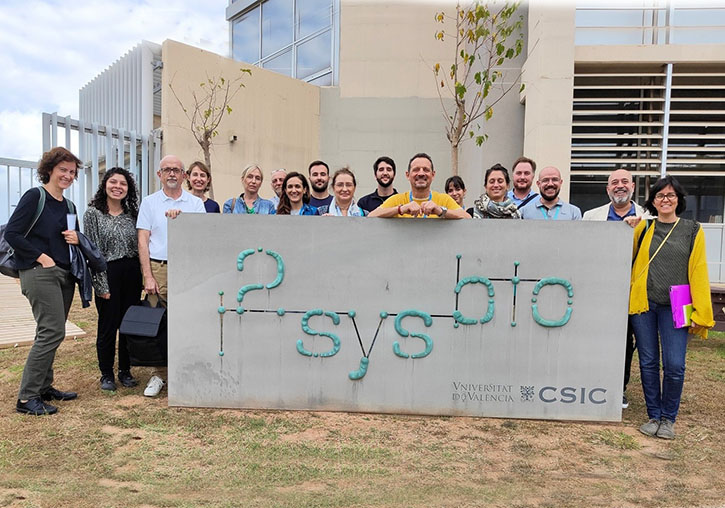
The technology that is being worked on will allow farmers to detect the infection of the Botrytis cinerea fungus before it manifests itself and, in this way, reduce investment in preventive phytosanitary treatments. The project, called Botvid-Sensor, has received a grant from the Valencian Innovation Agency for the 2022-2024 period.
A team from the Institute for Integrative Systems Biology (I2SysBio), a joint centre of the University of Valencia and the Spanish National Research Council (CSIC), develops a portable sensor that will help detect the gray rot disease of the vine, caused by the fungus Botrytis cinerea. The work, coordinated by the researcher Gustavo Gómez, tries to simplify the early detection of these infections before the symptoms appear, and thus reduce both the economic costs, due to the reduction in production, and the repeated application of preventive phytosanitary treatments.
The project is called ‘Botvid-Sensor: Development of a portable sensor for the early detection of Botrytis cinerea in the vineyard’, and proposes the development and optimisation of fluidic technology on paper in order to detect the presence of the fungus using specific probes of ribonucleic acids (RNAs), as markers of the disease. To do this, extracts obtained from vine leaves or bunches will be used. The production of the prototype also entails the development of the rest of the components of the diagnostic kit.
“The technology developed in this project will allow farmers to detect the infection before it manifests itself, when the treatments are most effective, and will help reduce investment in preventive treatments”, explains Gustavo Gómez. “In addition, it will increase the effectiveness of treatments with biocontrol agents and biostimulants, which will translate into an increase in their competitiveness, both in price and in results, compared to synthetic products. The implementation of this new system will favour the implementation of organic productions”, adds the scientist.
Botvid-Sensor is developed thanks to a consortium coordinated by I2SysBio, with the participation of the agrobiotechnology company Valgenetics S.L. – in the Science Park of the University of Valencia –, the Mediterranean Agroforestry Institute (IAM) of the Polytechnic University of Valencia (UPV) and the association La Unió de Llauradors i Ramaders.
The project has been selected to receive around 270,000 euros in funding in the call for aid from the Program of strategic projects in cooperation, corresponding to the 2022-2024 period.











